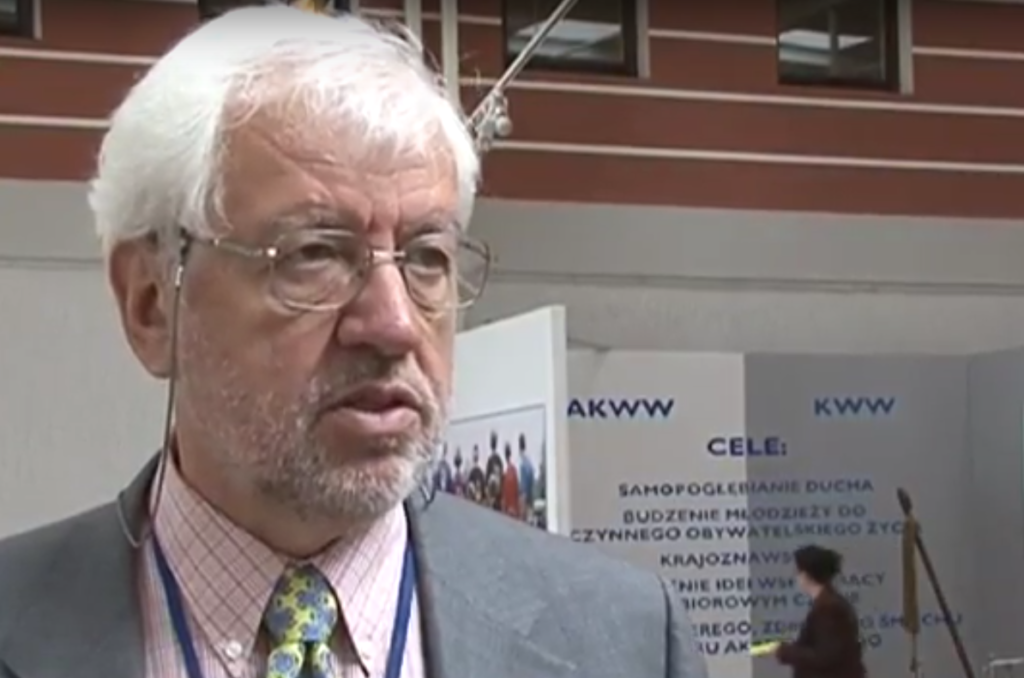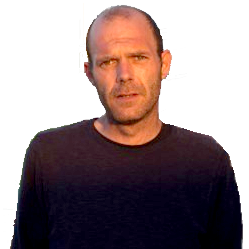02.12.2017 - 19:51
|
Actualització: 02.12.2017 - 19:52
Bojan Brezigar is a veteran journalist and the current editor-in-chief of Primorski, a newspaper aimed at the Slovenian minority in Italy. He has just written Six Days in Catalonia, an account of his visit to Catalonia during the October 1 independence referendum. The book has just come out in Slovenian and he expects that a Catalan translation will be published at some point. Brezigar has known Catalonia since 1971, the year when he first travelled to Barcelona. This has allowed him to add depth and context to his work. In this phone interview we discuss his book, Catalonia’s political process and the parallel that can be drawn between Catalonia and Slovenia, a country that achieved independence in the 1990s.
—You came to Catalonia for the first time in 1971. How different is Catalonia today?
—Like chalk and cheese. No offence, but in 1971 Barcelona as a city was ugly and dirty, without any visitors. Most large monuments were closed off: Parc Güell was derelict and Gaudí’s La Pedrera was not open to the public. Totally different. Barcelona was a Spanish city and you couldn’t see a word written in Catalan. I remember that I only saw a notice written in Catalan once in a shop. Someone had scribbled “tancat” (“closed”) on a scrap of paper.
—After October 1 you claim that the journey to independence will not be a fast one. Why?
—The notion that you could establish a new state within 48 hours was very optimistic. You cannot achieve that in two days. I said so at the time and I’d like to stress this point: more time is needed. I lived Slovenia’s experience and there they had a six-month plan. Six months between the referendum and the declaration of independence. Having said that, I believe that after the police violence, having half the government in jail, triggering Article 155, banning TV reporters from saying the words “President Puigdemont” and the attempts to change Catalonia’s school system, there is no turning back. There is no turning back for Catalonia. And there is no turning back for Spain. I think Rajoy might have stood a chance if he had handled matters differently at the start. If he had offered Catalonia greater powers, which is what the 2006 statute intended, we wouldn’t be where we are today. But the present situation is totally different. It’s all Rajoy’s fault. He campaigned against the new Catalan statute simply to woo voters [elsewhere in Spain].
—In your book you mention a phrase that was making the rounds on October 1: Franco is back.
—Yes, that’s what we, the international observers, kept saying to each other. It happened on September 30. Members of the delegation that had gone to see the unionist rally against the referendum in Plaça de Sant Jaume met at our hotel. They had witnessed Nazi salutes, people singing Cara al sol [a Spanish fascist anthem] and skinheads providing security. They came to the hotel and said “Franco is back”. I was appalled when I heard all that. Anyone familiar with francoism and fascism should be appalled at those scenes
—Catalans should commission a monument to Rajoy, much like Slovenians with Milosevic. You’ve said that.
—That was tongue-in-cheek. But, as you know, before independence the government of Slovenia certainly strove to keep Yugoslavia together. So has Catalonia [with Spain]. In Slovenia they proposed a federation and a confederation, but Milosevic rejected all that. He wanted a centralised government. So, in that sense, Rajoy is very like Milosevic. Everything that’s happened is down to Rajoy and he will be held accountable for anything that might happen in the future. Not just in Catalonia, but also in Spain.
—The Slovenian way. Will you please compare the Catalan way to the Slovenian?
—Every situation is different. No model can be transposed: neither Kosovo’s nor Scotland’s or Slovakia’s. We were part of Yugoslavia, a communist country with an undemocratic, totalitarian regime. Catalonia is part of the EU and Spain, a country that appears to be a democracy. Every case is different. There is no user manual. But Slovenia’s experience could be useful.
—Could you give us an example of that? Something worth noting?
—The people’s commitment. The commitment of the people was very important in Slovenia and in Catalonia, too.
—As a journalist, what differences have you noticed between the press in Catalonia, Spain and Europe?
—You crack me up! The Spanish press is a disaster. In my book you will find the front pages of Catalan, Spanish and international newspapers on October 2. Everyone can see for themselves that the Spanish papers were not reporting the story as it was unfolding. Not just that: watching TVE’s 24 Horas [a news programme on Spain’s public TV] provided an incredible experience. When a European TV station discusses a problem, they usually have guests in their studio who espouse different solutions. Not on TVE. They all opposed independence. All of them. I wouldn’t call journalism: it’s propaganda.
—Having invoked Article 155 [of the Spanish Constitution] now they want to control TV3 [Catalonia’s public broadcaster]
—Look, Article 155 is a remnant of Francoism. Madrid’s Audiencia Nacional court is absolutely unbelievable. During the fascist regime, Italy set up a special court of law. It dealt with matters to do with national security. It was a fascist tribunal. Many people were sentenced to death. After 1945 nobody contemplated creating a court of law based on a fascist tribunal. Nobody. Well, that’s what Spain’s Audiencia Nacional is: a court of law built on what used to be a francoist tribunal. In a normal state, the Catalan leaders who are currently in custody would have never been sent to prison in the first place. In a normal state you can only be remanded in custody pending trial under three circumstances: risk of flight, reoffending or destroying evidence. None of those apply here. But, still, they have been sent to jail! It contradicts the principles of modern criminal law.
—Will prison be a pivotal moment?
—It’s been an eye-opener for the people, yes. And I know there are doubts as to whether going into exile was a good idea. In my opinion, it was. Look, I was very active during Slovenia’s independence process and I advised the government leaders to leave the country and move to Trieste. There was a great deal of danger for two or three days. I thought, and I still think, that you’re better off abroad than in jail. You can do more political work.
—Some criticise the fact that a violent clash was deliberately shunned in Barcelona’s Plaça de Sant Jaume.
—I sympathise with the Catalan government’s position. They wish to achieve independence without violence. I believe it was a great decision. What Catalans did on October 1 took a a lot of courage and you ought to be proud of it. The smallest mistake would be used against you. They were expecting that. To me the only mistake was to expect that independence would be established in forty-eight hours. In Slovenia it took six months. There’ll be time now to prepare the details and discuss them in Europe.
—Precisely. What should the Catalan government do on December 22, the day after the elections?
—You will need to decide that on the day, not now. I’ve discussed this with many people. The situation is quite fluid, really. We don’t know what the Spanish government will do during the campaign and I get the feeling that we’ll have a surprise coming from Madrid. Let’s see how events unfold and then decisions can be made.
—Why do you claim that the Catalan case is not Spanish, but European?
—Picture a Catalonia in upheaval. That would shake up Spain and Spain is one of the larger states in Europe. That would be very dangerous for all of Europe. I’m surprised that the European leaders do not understand that the danger is real. When Greece was struggling, they realised that it was a European issue. Can’t they see that so is this one? I find the EU’s stance shocking. Is the EU merely concerned about money? Not human rights? Catalans are European citizens and their GDP is part of Europe’s. This is an internal enlargement. And if the treaties do no mention it, it’s because nobody thought it could happen. I think Brussels is not being realistic.
—In the Slovenian parliament, the Speaker of the House is very pro-Catalan. The president and the prime minister, not so much.
—I should make it clear that practically the whole public opinion in Slovenia supports Catalonia’s independence. To put it another way: everyone supports Catalonia’s right to decide its own future. The Speaker, an academic who has researched human rights, always says this: let Catalans decide their future. Many political leaders support those words. Unfortunately, the government has many ties with European parties. The prime minister has links with ALDE and the head of the opposition, with the PP. Both staunchly oppose Catalonia’s independence process.
—Why did you write your book?
—I didn’t do it for the money. I did it because I felt a moral obligation. For seven years I was the chairman of the European Bureau for Endangered Languages. It was an EU body that no longer exists and it dealt with minorities. We had the support of many, many Catalans: Lluís Maria de Puig, Fèlix Martí at UNESCO. They all helped us. And they did it for our sake, not theirs, because we were demanding stuff that Catalans already had: schooling, bilingual street signs, using the language in public, on the radio and TV. For me, supporting Catalonia now is a moral obligation. I cannot forget the support I received from all of them.
—You’re Italian, of the Slovenian ethnic minority.
—In Italy there are fifty or sixty thousand of us. We’ve been lucky. We have been living in a democracy since 1945, while in Slovenia they endured a communist regime. My father was a refugee twice. After World War I, he fled to Yugoslavia to escape fascism. And they helped him, in Italy. Since 1945, the Slovenian minority in Trieste has been allowed to be schooled in Slovenian. Their entire education. I was always schooled in Slovenian. And when they go to college, they may choose to attend a university in Italy or Slovenia. Slovenia’s Italian minority can do the exact same thing. And qualifications are recognised by both countries. In our region there are no attempts to redraw any borders, not at all.



